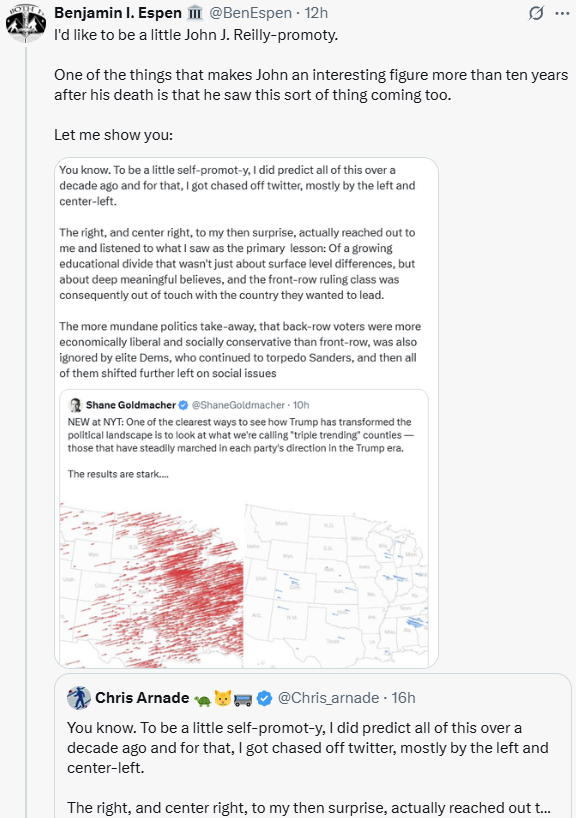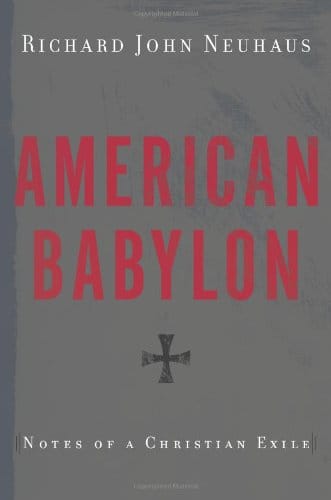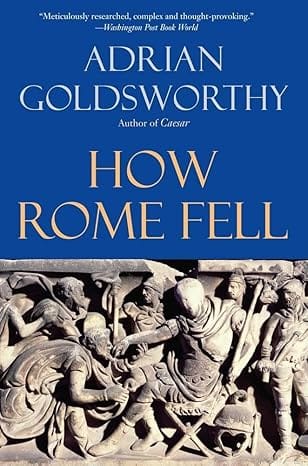The Long View 2004-08-10: Stability; Jesus the Kid; Heinlein
John Reilly mentions Robert Heinlein's nuclear survivalism in passing here. Since I am a child of the sunny 80s, the dark days of the Cold War often seem remote to me. However, I do know that a great many things in mid-twentieth century America were done in part because they could be tied to Cold War aims, including the Interstate Highway system, modern art, and the Civil Rights movement. John here claims suburbia was a matter of surreptitious civil defense, in the mode Heinlein suggested.
I haven't seen the laws in question, although as a legal editor John plausibly could have. I'll consider this possible but unproven until and unless I see the text, but it fits with other things I know.
This is a topic I've seen often, because of my love of Jerry Pournelle's There Will be War series. Survivalism is a recurring topic in those works, and in several of Jerry's novels. I've never seen Jerry say so much in print, but he knew Heinlein, and I could believe that Heinlein was an influence here.
Stability; Jesus the Kid; Heinlein
Danielle Pletka (of the American Enterprise Institute) had some illuminating things to say in yesterday's New York Timesabout the premises of John Kerry's foreign policy. In an optimistically entitled Op Ed, Arabs on the Verge of Democracy, she remarked:
The New Yorker
In this respect, Mr. Kerry echoes President George H. W. Bush and even his own father, Richard Kerry, a diplomat who once criticized the Reagan administration's "fatal error of seeing U.S. security as dependent on illusions of propagating democracy" in the Soviet bloc.
Used in this way, "stability" plays a role similar to Washington's Farewell Address in Patrick J. Buchanan's A Republic, Not an Empire. Both are cases of foreign policy prescriptions assuming the status of myth. I don't mean "myth" in the sense of an untruth, but of a way to organize experience. "Stability" has come to mean an unconditional policy of preserving international organizations, and even hostile states, whatever actual effect those organizations or states may have on the well-being of the United States. We should note that, though Henry Kissinger generally favored stability during the Cold War, this was largely because change was for the worse during that period, at least as far as the West was concerned. Writing about the the last quarter of the 19th century in his book Diplomacy (published in 1994), he showed a lively sense that the world does not always work that way:
Realpolitik -- foreign policy based on calculations of power and the national interest -- brought about the unification of Germany. And the unification of Germany caused Realpolitik to turn on itself, accomplishing the opposite of what it was meant to achieve. For the practice of Realpolitik avoids armaments races and war only if the major players of an international system are free to adjust their relations in accordance with changing circumstances or are restrained by a system of shared values, or both.
This flexibility is precisely what the Security Council system, and NATO, and the kudzu-like growth of "customary international law" prevents. Obviously the US needs a realistic structure of alliances. That is what John Kerry has promised to prevent, at quite literally all costs.
* * *
This summer, I have been re-reading short books rather than embarking on long new ones. One of these is Robertson Davies' Fifth Business (published in 1970), which deals with a curmudgeonly Scots-Canadian school teacher's search for the nature of sainthood. Anyone in immediate need of a new heresy might start with this complaint from one of the characters in the book, the detrimental old Jesuit, Fr. Ignacio Blazon:
My own idea is that when [Jesus] comes again it will be to continue His ministry as an old man. I am an old man and my life has been spent as a soldier of Christ, and I tell you that the older I grow the less Christ's teaching says to me. I am sometimes very conscious that I am following the path of a leader who died when He was less than half as old as I am now. I see and feel things He never saw or felt. I know things He seems never to have known....All Christ's teaching is put forward with the dogmatism, the certainty, and the strength of youth: I need something that takes account of the accretion of experience, the sense of paradox and ambiguity that comes with years! I think after forty we should recognize Christ politely but turn for comfort and guidance to God the Father, who knows the good and evil of life, and to the Holy Ghost, who possesses a wisdom beyond that of the incarnated Christ.
I find this interesting because I frankly don't know what Davies means. Jesus delivered more paradoxes than Domino delivers pizzas. Novels about young men are usually about coming-of-age; the extreme case is the Bildungsroman. That is exactly what the Gospels are not. Whatever you may think of the historical Jesus, the Gospel Jesus is mature and fully formed from the first, like Athena from the brow of Zeus.
Imaginary older Jesuses are not unique to Davies, of course. However, the notion that these constructs might articulate new doctrine seems fairly rare. Here is another instance that comes to mind, from C.S. Lewis's The Great Divorce (published in 1946). The speaker is the spirit of an Anglican bishop, describing intellectual life in Hell:
But you've never asked what my paper is about! I'm taking the text about growing up to the full measure of the stature of Christ and working out an idea which I feel sure you'll be interested in. I'm going to point out how people always forget that Jesus (here the Ghost bowed) was a comparatively young man when he died. He would have outgrown some of his earlier views, you know, if he'd lived. As he might have done, with a little more tact and patience. I am going to ask my audience what his mature views might have been. A profoundly interesting question. What a different Christianity we might have had if only the Founder had reached his full stature! I shall end up by pointing out how this deepens the significance of the Crucifixion. One feels for the first time what a disaster it was: what a tragic waste...so much promise cut short. Oh, must you be going?
Let this be a warning to you.
* * *
One prophet who did live long enough to know better was Robert Heinlein. I was recently moved to re-read some of his stuff, because the Heinlein Society was kind enough to ask to mirror my review of Tramp Royale. (I corrected a glaring error about Heinlein's political activity when I went over it again.)
I have been reading an anthology, Expanded Universe (published in 1980). It's triply interesting: many old Heinlein items not otherwise available, especially from the early Cold War; extended commentary on them by Heinlein himself; and we finally, finally, get to see how Heinlein's predictions in 1956 for the year 2000 came out. Actually, his score went up since his assessment in 1980. In 1956, he not only predicted the end of Communism; he predicted cellphones. The bastard.
The point I take away is not that Heinlein was often wrong about the future (still no flying cars, and more's the pity), but that he routinely grasped some important principle and then made hash of the application. This is easy to forgive in his story from 1940, "Blow-Ups Happen," which dealt with a commercial nuclear reactor that was also potentially a bomb. He misunderstood how chain reactions worked, but there were few people in the world at the time who could have corrected him. Much more interesting are his nuclear-hysteria essays from immediately after the end of World War II. One of them, "The Last Days of the United States," the earliest essay advocating "survivalism" I have encountered.
Heinlein there discusses a proposal common in those days, that the nation's urban population should be "dispersed" to make it less vulnerable to atomic attack. He describes a scene in which a local Civil Defense warden knocks on a neighbor's door and tells him that he has until Tuesday to get ready to be relocated to a new settlement. Since that obviously was not going to work, Heinlein urged people to create rural retreats on their own initiative. In the event, though, government policy did disperse the population. That's what all those federally-backed mortgages for suburban housing developments were about, as well as the highway system to get to them. There were other reasons for suburbanization, of course, but we forget that a lot of the appropriation bills said "national defense" somewhere in the titles.
On the other hand, everything Heinlein had to say in his stories and essays about government decapitation is still relevant. The underground bases he recommended in case Washington is attacked were built, but there is still no easy way to replace Congress in a hurry if the membership is killed or incapacitated. This could yet prove awkward.
Copyright © 2004 by John J. Reilly



Comments ()